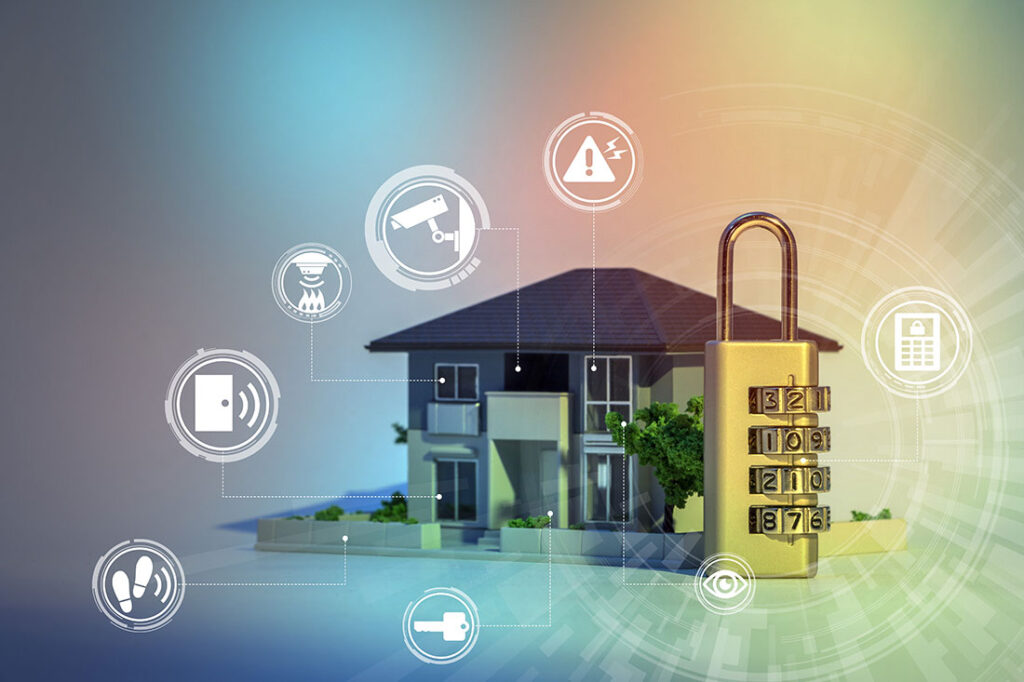Over The past several years, we have seen popular voice assistants like Alexa and Google Assistant spread throughout the smart home – and arrive in alarm systems. What started out as an add-on or gimmick has quickly become an important feature to many buyers, more so in 2021 than ever before. Let’s take a look at the key reasons.
In 2021, People Want to Touch Fewer Surfaces
COVID-19 has made masks and social distancing practices a norm throughout the world. It’s no surprise that businesses and homeowners are looking for more ways to avoid possible infection and make things safer for those around them. As a result, more people are embracing voice assistants as a way to control devices without getting too handsy.
This approach is becoming particularly popular with security systems: Instead of constantly touching a numeric keypad or hub, users like the idea of unlocking doors and arming security systems with their voices. For those selling other smart devices, it’s also a great way to avoid touching other things like light switches, thermostats, entertainment system buttons, providing extra value for those who are concerned about their health and spreading disease.
People are Getting Used to Voice Commands
In addition to coronavirus concerns, the voice assistant trend has also been helped by an older phenomenon: Familiarity. People are now used to using Siri, Alexa, and Google Assistant in a variety of devices, from their smartphones to Echo speakers.
These interactions have become an everyday part of life. That’s why buyers are embracing the idea of using voice assistants wherever possible, and the thought of controlling security systems with voice commands no longer seems strange – even for those hesitant to adopt such features before. It’s a valuable marketing opportunity for security installation companies looking for new services to highlight!
Voice Assistant Alerts Can Be Useful Across Device Ecosystems
Voice controls have also proven to be highly adaptable. Some versions are centered on a security hub that controls a variety of sensors, while others are included in individual devices (we have even started seeing them appear on smart smoke detectors). Others enable voice controls through apps that are available on phones or tablets that users can activate via the cloud no matter where they are.
There is no one way to use voice assistants like this: Each brand has its own approach, which creates more choice for buyers and helps them find the voice control solution that fits their security plans. This goes hand in hand with compatibility: Voice assistant platforms are working hard to be compatible with as many smart devices as possible. This is particularly true of Alexa, which has focused on full-house compatibility and supports thousands of brands, but competitors like Google Assistant are also expanding compatibility. Perhaps best of all for users, the addition of voice assistant compatibility rarely raises the price of security systems.
The Latest Voice Assistant Devices Pair Well with Security Systems
We briefly mentioned Amazon’s Echo devices, but it’s worth underlining that smart speakers like this are becoming more common in homes and businesses everywhere. This also creates additional synergy with security systems, especially when it comes to smart security cams. Smart displays that include screens, such as the Echo Show line, can show live feeds from security cams with a single command. Combined with voice assistant alerts from motion detectors, and this is a useful feature for many homes.
Alexa isn’t the only voice assistant combining smart screens and security cams, either. Apple has similar capabilities for its Apple TV devices that are compatible with HomeKit. This type of connection between smart devices in the home can become a key selling point for alarm systems.
Bigger Brands are Adopting Compatibility
It isn’t just smaller security brands and DIY systems that are adopting voice assistant compatibility. Large platforms like ADT are also bringing voice control technology to their security systems. In fact, ADT’s approach with Pulse Voice will be an interesting test for the future of these features: The company is creating its own voice assistant instead of relying on popular assistant created by Amazon or Google, designed to help improve controls, add voice-based passphrases, and aid the visually impaired. It’s worth keeping an eye on the venture to see if proprietary voice features have a place in the industry, or if buyers will prefer more familiar assistants.
Voice Commands are a Great Addition to Security Systems for the Elderly
The growing market of smart security for the elderly is a perfect match for voice assistants. Assistants can be easily activated even if someone isn’t near the device (such as in the case of a fall). They also integrate well with devices that seniors use to keep in contact with friends and family, making them an ideal pick for independent living villages and assisted living facilities.
Final Note: Remember to Discuss Privacy
Customers may have questions about voice assistant privacy, and how much of their data is collected by voice assistants, so it’s important to brush up on these aspects if you are offering voice control features. Common assistants like Alexa and Google Assistant have ways to wipe their history or automatically delete voice command logs, and options to shut off mics on devices when users don’t want to use them. Details like these can help assuage fears that buyers may have when looking at potential upgrades.






